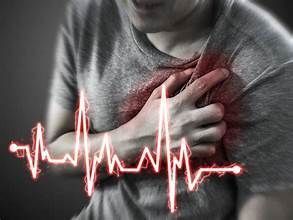
Credit to HeartSmart for this informative article:
Sudden cardiac arrest awareness month is dedicated to raising awareness around the life-threatening condition that occurs when the heart suddenly stops beating effectively.
What is sudden cardiac arrest?
Sudden cardiac arrest is a sudden loss of heart functionality and often occurs due to an abnormal heart rhythm called ventricular fibrillation, which causes the chamber at the bottom of the heart to quiver instead of contracting effectively. When the heart’s electrical system malfunctions, blood stops pumping to the rest of the vital organs in the body.
SCA happens quickly making immediate intervention crucial to save lives. Understanding more about the symptoms, what to look for, and how to treat sudden cardiac arrest effectively can provide many benefits. Follow the next 5 ways you can benefit from learning about sudden cardiac arrest.
1. Increased awareness means increased preparedness
Increased awareness around sudden cardiac arrest and the risk factors that come along with it means increased preparedness for cardiac emergencies. Understanding the signs, symptoms, and risk factors helps you recognize the condition promptly and respond more quickly and confidently.
Some triggers to sudden cardiac arrest include:
- Heavy alcohol use or binge drinking
- Physical exertion or physical stress
- Use of drugs such as cocaine, amphetamines, or marijuana
- Drinking too much coffee
- Severe emotional stress
- Influenza infection
There are also some health conditions that may increase the risk of cardiac arrest such as:
- Coronary heart disease
- Arrhythmias
- Congenital heart defects, cardiomyopathy, and heart valve disease
- Damage to the heart or heart inflammation
- Heart failure
Understanding the risk factors and triggers can help individuals understand who may be at risk around them to be prepared for potential SCA events. There are many other factors to consider as well such as age, gender, race and ethnicity, and family history. To review a full detailed list of these risk factors click here.
2. Enhanced life saving skills
One of the best ways to learn about sudden cardiac arrest is by taking CPR and AED training courses. By participating in CPR and AED training courses, you not only acquire the practical knowledge and hands-on practice, but you enhance your preparedness to remain composed under chaotic emergency environments.
Training courses also extend beyond the immediate response and help trainees grasp a deeper understanding of cardiovascular health, risk factors, and preventative measures.
3. Improved personal and community health
Having knowledge of sudden cardiac arrest and its triggers can help you make healthier personal decisions and heart-healthy habits in your day-to-day life.
Understanding the difference these heart-healthy decisions make can also encourage you to promote a healthy lifestyle to friends, family, clubs/groups, and your community, creating a safer and healthier environment.
4. Empowerment to help others
Learning how you become a potential lifesaver in an emergency can help teach you about the power of helping others and how your knowledge can make a life-or-death difference to the people in the community around you. Given a skillset as such can make individuals feel a sense of responsibility and duty in their community to step up and provide emergency first aid services when it matters most.
5. Positive impact on your community
The more you know and understand about SCA, the more you can advocate for more awareness around the topic and support initiatives to create safer communities. As you learn more about the topic yourself, you’ll discover the statistics that back the urgency of having AEDs readily available in various public spaces.
You can advocate for AEDs in conversations or campaigns that shed light on the importance of having these life-saving devices accessible in places like schools, churches, local businesses, and community centers. A great place to start would be offering to speak up at town hall meetings, school board gatherings, or local business associations about the significance of putting AEDs in the hands of everyday citizens to make a difference.
Original post: https://www.heartsmart.com/blogs/october-is-sudden-cardiac-arrest-awareness-month/
